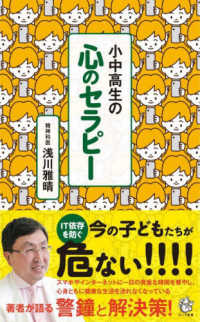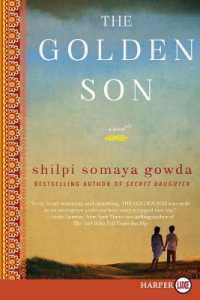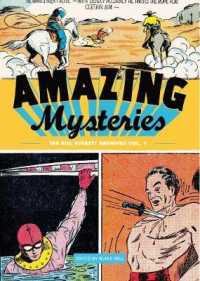Full Description
Taking up the challenge of understanding power in its complexity, this volume returns to and revitalises the concept of 'authority'. It provides a powerful analysis of the ways that relationships of trust, attachment, governance and inequality become possible when subjectivities and bodies are invested in the life of power. The collection offers a vibrant new analysis of the biopolitical, arguing that 'experience of life' has become equated with 'objectivity' in contemporary culture and has thus become a primary basis of authority. 'Biopolitical' or 'experiential' authority can be generated through reference to a variety of experiences, performances or intensities of life including creativity, radicalism, risk-taking, experimentation, inter-relation, suffering and proximity to death. The authority-producing capacities of community and aesthetics are key issues, pointing to vexed relationships between politics and policing, inventiveness and violence.
The contributors develop their theoretical analyses through discussion of a range of specific sites including mental-health service user and survivor politics, biological knowledge, refugee activism, stories of suffering, urban art, anarchism, neo-liberal community politics and marketization. Authority, Experience & the Life of Power challenges thinking on what 'the political' is and isn't, pushing against the all too easy equivocation of revolutionary break and empowerment.
This book was published as a special issue of the Journal of Political Power.
Contents
1. Authority and experience 2. Biopolitical authority, objectivity and the groundwork of modern citizenship 3. The figure of authority: the affective biopolitics of the mother and the dying man 4. Service user involvement, authority and the 'expert-by-experience' in mental health 5. On the 'inoperative community' and social authority: a Nancean response to the politics of loss 6. Routing the camp: experiential authority in a politics of irregular migration 7. Immanent authority and the performance of community in late nineteenth century Montmartre 8. Authority, convention and political community 9. Immanent authority and the making of community: a response 10. Engaging an infinity in actuality: exposing political space in the authority of experience itself







